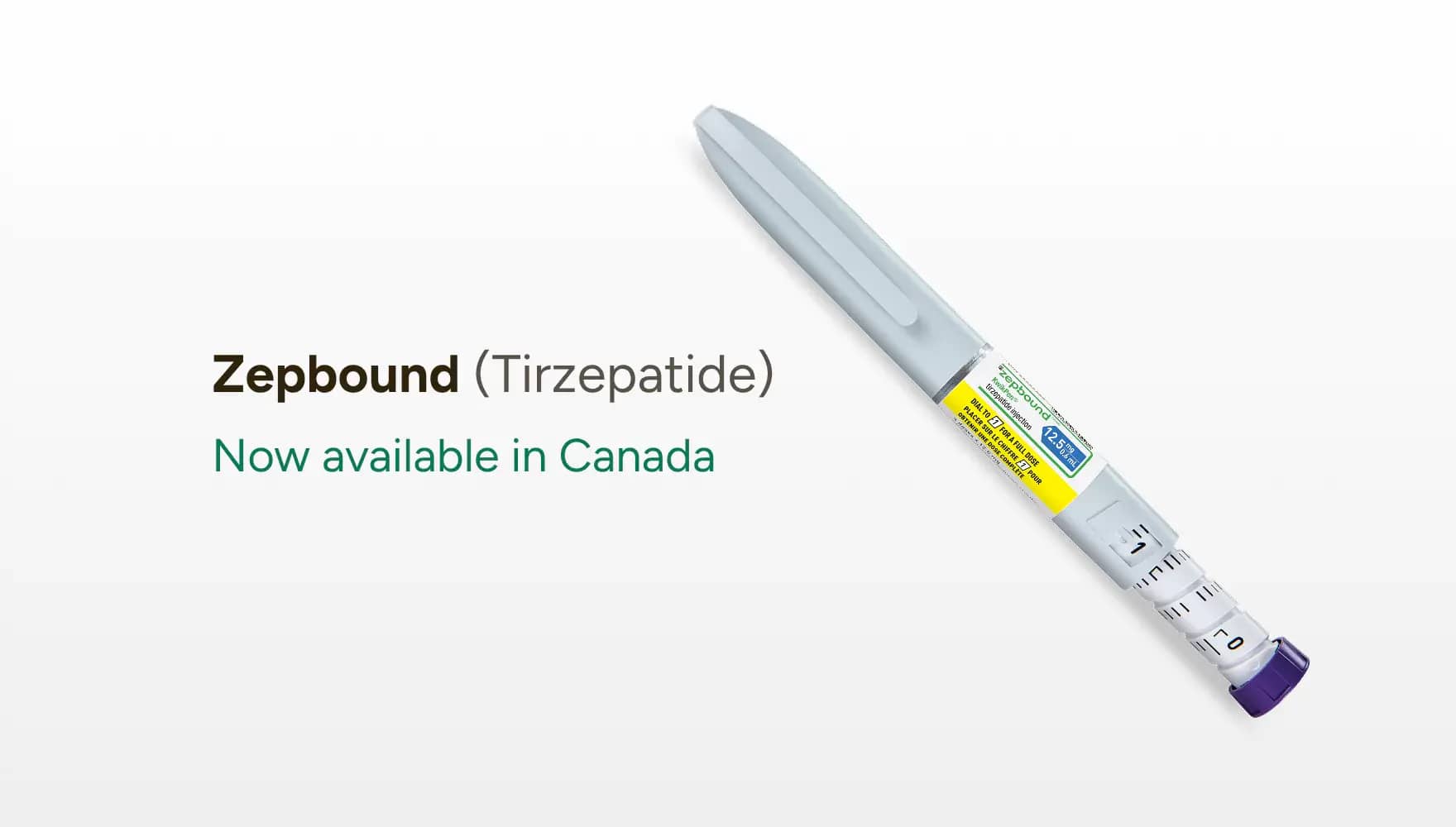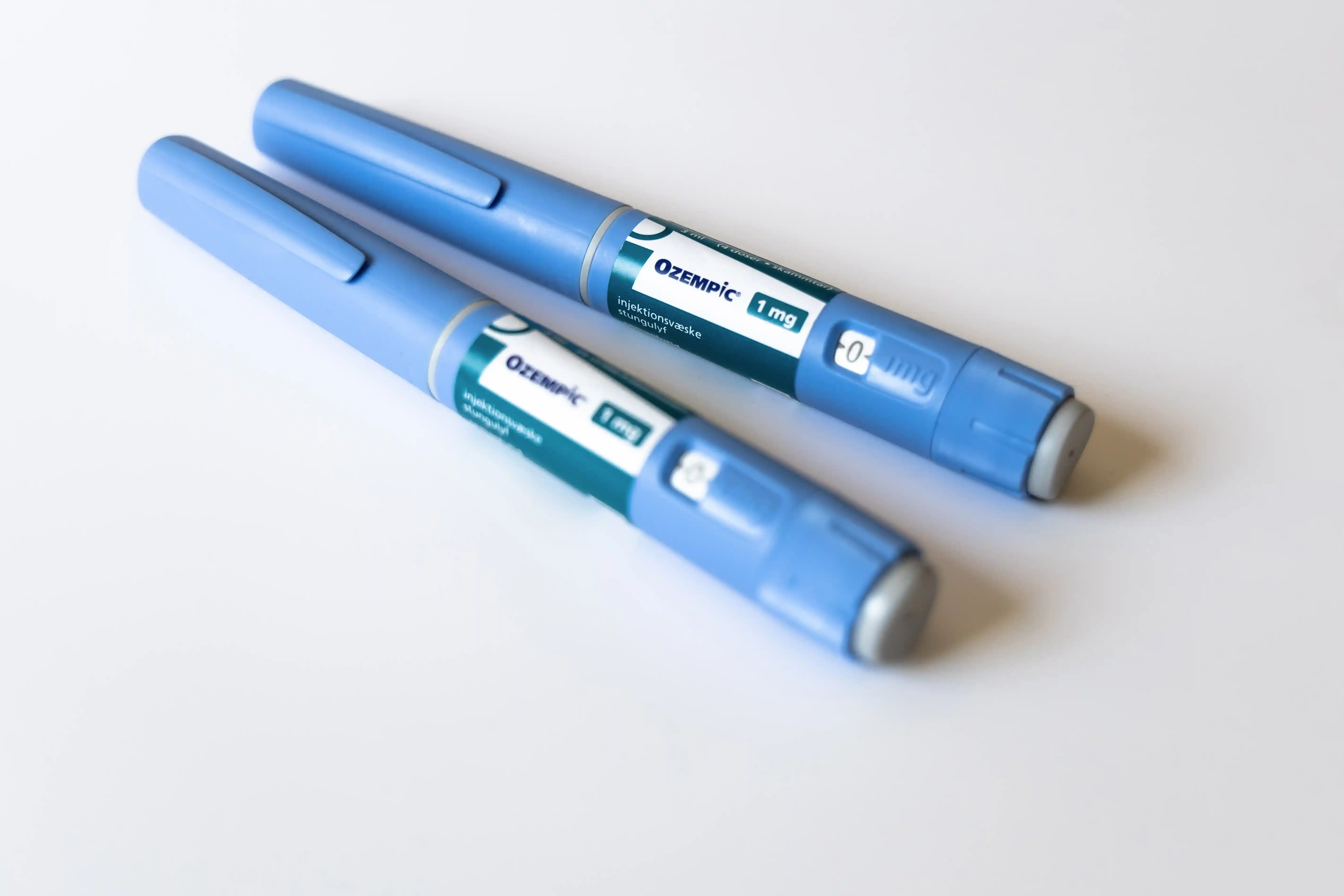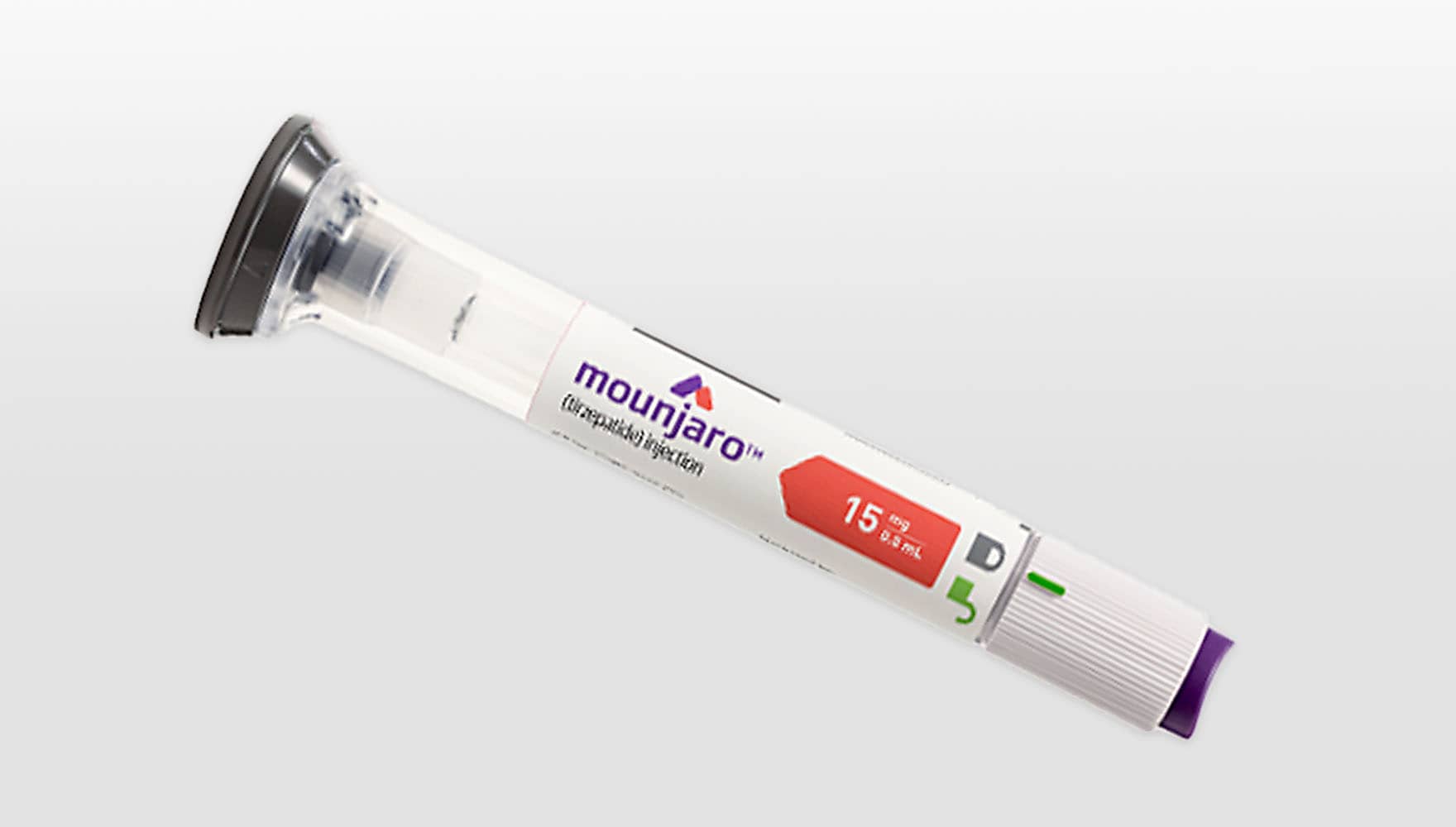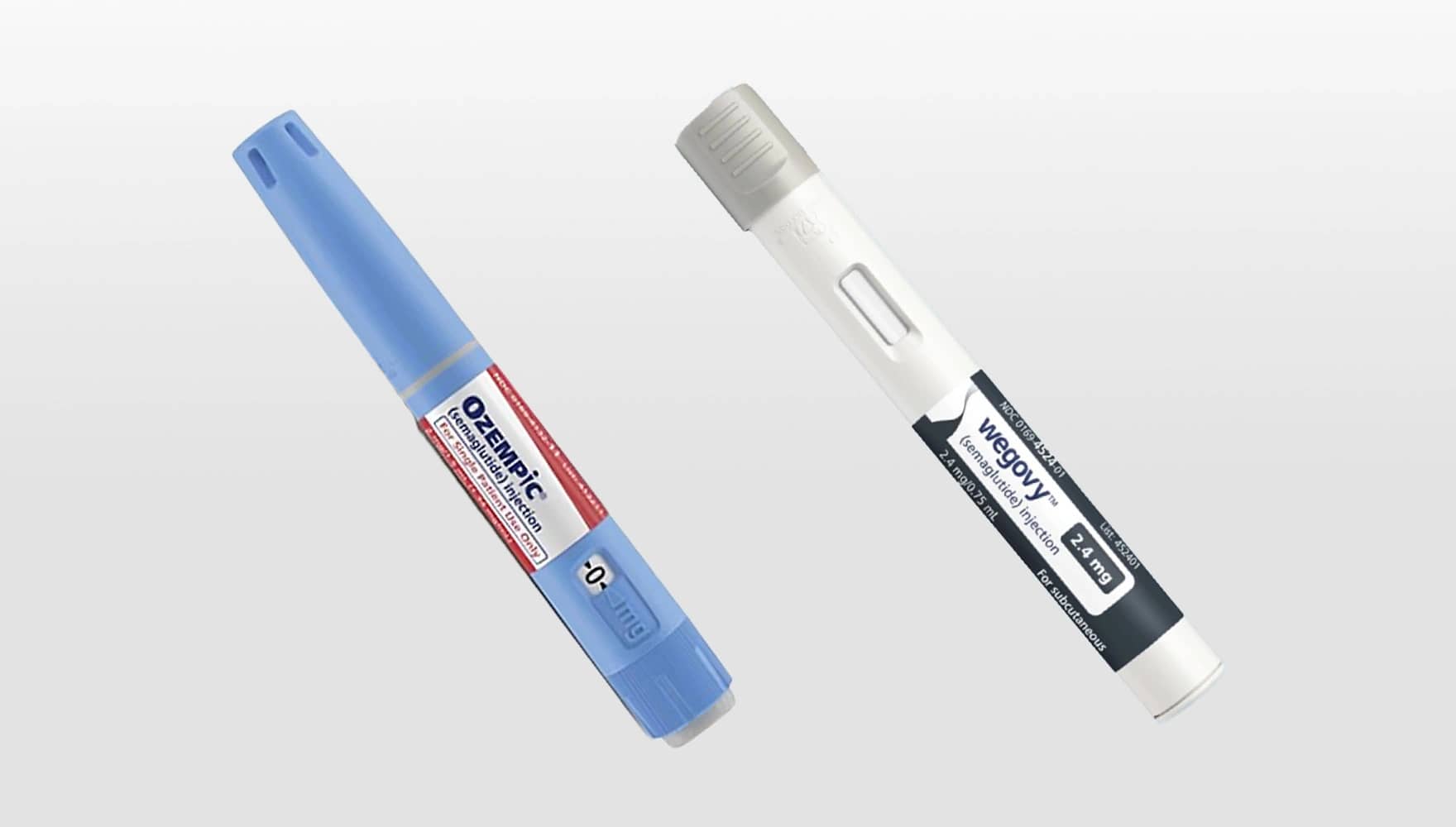Sorry, the page does not exist
We are unable to find details about the specific blog. Please explore other blogs listed below
Other articles
Maximum Dose of Ozempic for Weight Loss: Is More Better?
If you’re using Ozempic to support your weight loss journey, you might wonder what the maximum dose of Ozempic for weight loss is or whether increasing it will accelerate results.
While higher doses may seem like a quicker path to results, it’s important to approach dosing with caution. According to the FDA, taking too much Ozempic can lead to serious side effects that may require extended medical care due to the drug’s long half-life, which means it stays in your body for approximately 1 week.
If you’re aiming for effective, sustainable results, let's walk you through how Ozempic dosing works, the maximum recommended amount for weight loss, and why medical supervision is key to staying safe and seeing sustainable results.
Posted On: July 18, 2025
Ozempic Weight Loss: What You Need to Know Before Starting
Losing weight isn’t just about willpower, especially when conditions like insulin resistance, sleep apnea, or fatty liver disease complicate the journey. As a result, more Canadians are exploring medical options like Ozempic, a medication that has gained widespread attention as a promising solution for individuals striving to lose weight.
According to a recent survey by Dalhousie University, 27.2% of users take Ozempic specifically for weight loss, while 11.6% use it for both diabetes and weight management.
With obesity rates on the rise, the demand for effective, evidence-based weight loss treatments has never been greater. So, let's explore how Ozempic weight loss works, what the science says, and what to expect, without hype or shortcuts.
In this blog, we will also break down common side effects and offer tips for safe use, helping you make an informed decision in partnership with your health care provider.
Posted On: December 13, 2024
What Makes DooÜ Legit?
Let us take a guess - you've been looking for the best way to lose weight with weight loss medications and stumbled upon DooÜ. You've never heard of DooÜ, but you'd like to make sure we are a legitimate company before using DooÜ services.
Your skepticism is valid; Getting prescription medications online through a telehealth company is still a new way to access healthcare; In Canada, the telemedicine market was valued at $4.8 billion in 2022 and is predicted to grow annually 18% from 2022 to 2030. Over the past several years, more Canadians have opted for virtual healthcare to seek help with non-emergency concerns. It is effective, affordable, and convenient, plus it offers a level of privacy that some people may prefer over going to a doctor's clinic.
Since it is a new way to access healthcare, it is understandable to be cautious; Your health is being put into someone else's hands! There are reports of many telehealth and online pharmacies being fake in Canada, making it difficult to know who to trust.
This is where DooÜ comes in. At DooÜ, our doctor-led team provides affordable and safe online healthcare across Canada. We offer online healthcare visits with licensed Canadian practitioners and fill all prescriptions through our accredited Canadian pharmacy partner, approved by National Association of Boards of Pharmacy (NABP).
You might be wondering, Is DooÜ legit? How do I know that DooÜ is properly certified to provide healthcare? Our patient care and trust is our utmost priority, and we are proud to be certified by LegitScript to provide telemedicine services within Canada. The LegitScript Certification is provided to legitimate telemedicine providers, like DooÜ, that comply with all applicable laws and required standards for legality, safety, and transparency.
Posted On: October 11, 2024
Having Trouble Losing Weight with PCOS? Here’s What You Need to Know
Weight loss has always been a challenging area for most individuals, and those with Polycystic ovary syndrome (PCOS) know the challenge all too well. Polycystic ovary syndrome is a hormonal disorder that affects 8-13% of women of reproductive age, and as many as 1.4 million Canadian women. One common frustration with PCOS is how easy weight gain can be, or how difficult it is to lose weight. This challenge can be physically, and emotionally taxing, but it's important to understand how PCOS affects your body in order to begin treating weight gain from PCOS.
Lets dive into why PCOS makes losing weight difficult, strategies to address this, and explore how medical treatments like prescription weight loss medications can help.
Posted On: October 8, 2024
How to Overcome Weight Loss Plateaus on Medications?
Weight loss can start wonderfully when using weight loss medications such as Ozempic or Wegovy - your new fitness routine, diet, and medication are working well together to reduce excess weight on your body. However, you may hit an unexpected weight loss plateau at some point. This experience is common, particularly among individuals taking weight loss medications, such as GLP-1 agonists (like Ozempic, Wegovy, and Saxenda) or other prescription drugs designed to help in weight loss. Plateaus can be frustrating in determining how to overcome them.
Posted On: September 24, 2024
Which Weight Loss Medication is Right for You?
When looking to start your weight loss journey, most experts agree that a combination of lifestyle changes such as diet and exercise is recommended. However, these changes alone may not be enough, and can be incredibly frustrating and challenging to manage. In more recent years, many prescription medications and weight loss drugs have become more well-known for their role in weight loss; Generally speaking, Most prescription weight-loss drugs work by decreasing appetite, promoting feelings of fullness, and interfering with fat absorption. This can help decrease caloric intake and aid in the process of decreasing body weight.
The majority of these medications have been used to treat diabetes, but come with the additional benefit of managing weight and body mass index (BMI). When it comes to weight loss medications, there are several to choose from; In this blog, we'll explore several popular weight loss drugs, such as Ozempic, Wegovy, Contrave, and others, to help you understand the benefits, side effects, and which one may be suitable for you on your journey to lose weight.
With any weight loss medicine, it is very important to talk to your health care provider about side effects. Talk to yours about any side effect that bothers you or doesn't go away.
Posted On: September 18, 2024
Plant-Based Diets for Weight Loss - Are They Effective?
In recent years, the popularity of plant-based diets has soared, with more and more people turning to this way of eating for various reasons. Whether for ethical, environmental, or health concerns, plant-based diets are making their mark. But one question often arises: Are plant-based diets effective for weight loss?
If you’ve been searching for a sustainable way to shed those extra pounds, you might wonder if a plant-based diet could be the answer. In this blog, we’ll explore the effectiveness of plant-based diets for weight loss, examine the science behind them, and provide practical tips for making this diet work for you.
Posted On: August 30, 2024
Comprehensive Guide to Mounjaro Weight Loss Medication in Canada
Weight loss - a challenging and frustrating journey millions of Canadians embark on every year. Nationally, obesity rates are rising alarmingly with two in three adults and one in three children being overweight or living with obesity. There are multiple health problems related to excess body weight, such as Type 2 diabetes, high blood pressure, heart disease, and stroke. While a healthy diet and exercise is highly recommended to lose and maintain weight, some individuals may need additional help to achieve their ideal goals to lose weight. This is where weight loss medications can come into the mix.
Weight loss medications are prescription medications provided by a physician that reduce or control excess body weight. Since they require a prescription from a doctor, patients will need regular and consistent monitoring to ensure progress and optimal health. Prescription weight loss medications are not intended to be used in place of a healthy diet and exercise, but alongside. This is also imperative for post-treatment care to prevent weight gain.
There are many prescription medications available, with Ozempic and Wegovy most well-known for their powerful effects on weight loss and weight management. However, these medications have the active ingredient semaglutide, which may not be appropriate for every individual. That's where Mounjaro comes in. This comprehensive guide will delve into everything you need to know about Mounjaro in Canada, from its benefits and side effects to how you can access it, ensuring that you're fully informed before making any decisions regarding your weight loss journey.
Posted On: August 21, 2024
Ozempic Face: The Mysterious Side Effect
Ozempic, a brand name for the medication semaglutide, has taken the weight loss world by storm. It's a glucagon-like peptide-1 (GLP-1) receptor agonist, a medication originally prescribed for type 2 diabetes, that has shown remarkable effectiveness in promoting weight loss. However, alongside its benefits, Ozempic can lead to a side effect nicknamed "Ozempic face."
Posted On: August 21, 2024
Hydration for Weight Loss: How H2O Can Be Your Secret Weapon
We all know water is essential for life, but did you know it can also be a powerful tool in your weight loss journey? While a healthy diet and exercise are key players, staying hydrated can significantly boost your efforts. Let’s look at the science behind how water helps you lose weight and how to incorporate sustainable hydration habits for weight loss success.
Posted On: August 8, 2024
Hydration! Hydration! Could this be your secret to weight loss?
We all know water is essential for life, but did you know it can also be a powerful tool in your weight loss journey? While a healthy diet and exercise are key players, staying hydrated can significantly boost your efforts. Let’s look at the science behind how water helps you lose weight and how to incorporate sustainable hydration habits for weight loss success.
Posted On: July 12, 2024
The #Oatzempic Challenge: Is It Worth the Hype?
The #Oatzempic hashtag is taking TikTok by storm with a simple weight loss drink that promises to help you lose up to 40 pounds in just two months. This viral concoction, made from oats, water, and lime juice, is inspired by the name of the diabetes medication Ozempic, known for its weight loss side effects. But before you jump into this latest trend, let's separate fact from fiction and consider healthier, more sustainable weight management options.
Posted On: June 24, 2024
Beginner’s Guide to Mindful Eating for Weight Loss
Let's dive into a journey that’s about more than just calorie counts and the next big diet trend—it’s about embracing the joy of eating with mindful eating. Yes, in a world buzzing with the latest in medical weight loss solutions like Ozempic and the pursuit of the perfect wellness regimen, we’re here to slow things down and savour each bite. It’s not just another trend—it’s about making every bite count!
Posted On: May 14, 2024
Ditch that pricey gym memberships and confusing workout plan.
Turns out, the secret to dropping those pounds could be as simple as taking a stroll.That's right! Forget about the high-tech gym equipment and complex fitness routines that make you feel like you need a manual. Welcome to the world of walking—a straightforward, tried-and-true method that's about to become your new best friend on your weight loss journey. Let’s break down how this basic activity can lead to major changes in your health and your waistline.















































